Residence in Spain

Now that you have a start on your Spanish documents, you can sort out your Spanish residence permit. The NIE is a requisite to have residence in Spain, while the Padrón is… kind of a requirement as well, for non-EU citizens, but not a requirement for the EU citizens. I recommend that if you have the Padrón, take it with you on the residence permit appointment whatever your nationality is, but if you are still sorting out the Padrón, you can start preparing for the residence permit anyway. You should get started on the residence permit as soon as you have a NIE because you can only stay legally in Spain for up to 90 days without it.
This process varies a lot if you are from the EU or not and depending on your employment status (meaning if you have a job in Spain, if you are self-employed, pensioner, etc), among other things. It is not one case fits all, so we won’t cover all the bases in this post, as I intend to speak only about things I have experience on. Regardless, here is the link to the Immigration portal of the Spanish government (shown below) for a much more detailed source. They change this often; so if the link doesn’t get you there, please google “portal de inmigración España“. 😉
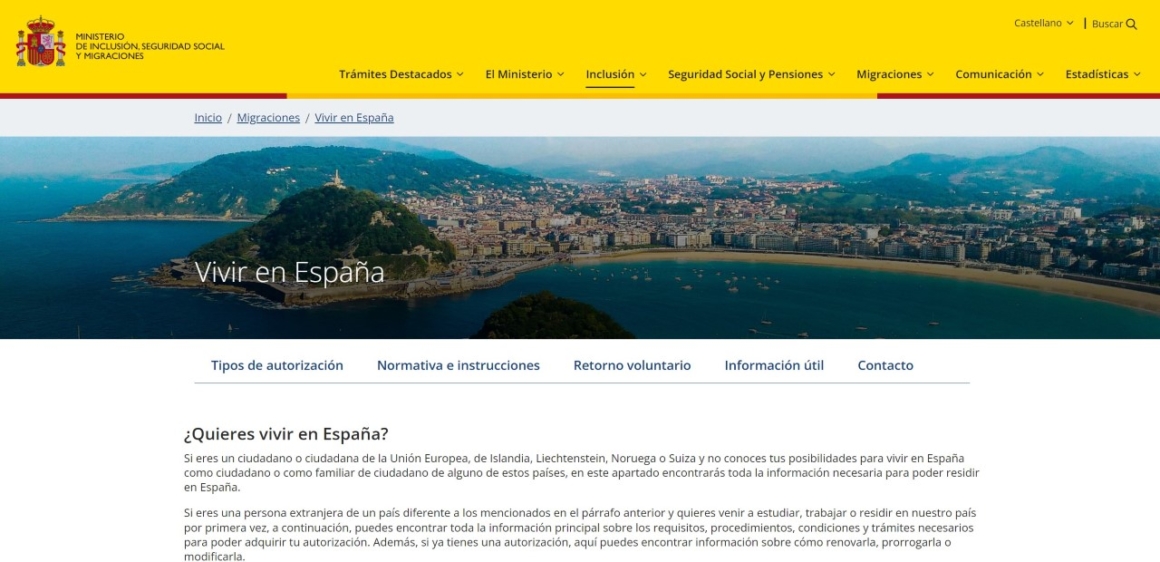
Also, during the process of booking the residence appointment there are links showing all the documentations needed in each case. So you certainly will know what documents you need; the difficult part is that some of these requirements themselves can be hard to obtain – that is when a gestor is needed.
Residence in Spain for EU citizens
In our case, Hubby, European, needed:
– the appointment (I’ll show you how it is done on Booking a Residence appointment for EU citizens)
– 2 copies of Form EX-18 (more on this on Residence in Spain – documents and fee for EU citizens)
– Proof of fee payment
– passport and copy of identification page
– NIE
– Proof that he was self-employed.
If he had a job he should have presented proof of that instead of proof of self-employment; if he intended to have no source of income in Spain, he would have to prove that he had enough means to keep himself in the country and would have to acquire a private health insurance. That is it in general terms for Europeans to obtain residence in Spain, as far as I know.
Related posts:
Residence – documents and fee for EU citizens
Booking a residence appointment for EU citizens
Residence in Spain for Non-EU citizens
When we did the residence procedures we were still dealing with our previous gestor “X” and it was a confusing process all the way. Nevertheless, she did help us particularly with setting up the autonomo (self-employed) paperwork for Hubby and my own positive resolution (it is a document that acknowledge my right to live in Spain due to marriage; more on this latter).
I do recommend having a good gestor helping out with the process to obtain residence in Spain if you are going the self-employed way or are a non-EU citizen, because of this part of the documentation that is challenging to obtain on your own. Before you book you appointment, make sure you have these documents sorted out.
For me, non-European married to European, I had to show:
– the appointment (I’ll show you how it is done on the Booking a Residence appointment for non-EU citizens)
– 2 copies of Form EX-17 (more on this on Residence – documents and fee for non-EU citizens)
– Proof of fee payment
– passport
– 1 document picture size 32x36mm
– Padrón
– Positive concession of permission resolution
The list of required documentation for non-EU citizens, that you find while booking a residence appointment, does not include proof of means. Hubby had already proved his own, but once again, this proof of funds was presented with the rest of the documentation. I also presented our marriage certificate translated into Spanish (also not on the list, but this one was needed to get the positive concession of permission resolution) and the proof that he was autonomo, despite it not being in the list of requirements. See how good it is to carry your big, big file folder with you?
I presented all these documents as one block of papers, so I don’t actually know what was useful or not; we will see the requirements in detail in Residence – documents and fee for non-EU citizens, but if you have more than required, it doesn’t hurt to bring it too.
Related posts:
Residence – documents and fee for non-EU citizens
Booking a residence appointment for non-EU citizens
Residence in Spain for Kids
For Kiddo, we also needed to present his birth certificate translated to Spanish, which we already had because it was a requirement for the Padrón. The time we tried to make his NIE was unsuccessful because he wasn’t present; according to the police, the kid had to be there, go figure.
So, for the residence, Kiddo had to miss a school day to go to the police. He was quite excited, even did a drawing of himself receiving the document from a police officer an put it on the fridge; so I guess it was educational… As both the parents were already registered (the requirement is that at least one parent is registered) his process required only appointment, form EX-18 (as he is European), paid fee, translated birth certificate, passport and his presence – no NIE, proof of funds or positive resolution.
In the next posts, I’ll show how to book the residence appointments for both EU and non-EU citizens and we will look in more details on the forms and documentation required. Different from the NIE, we will first see the documentation needed, because it can be extensive, so it is advisable to get it done before booking the appointment. May seem like a lot, but once you are done it will be good, right? Eyes on the prize, let’s go!
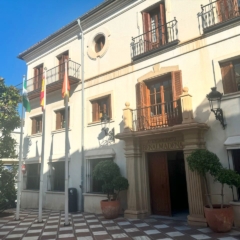
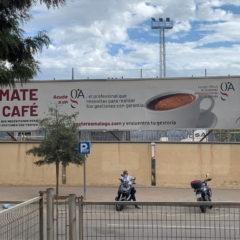
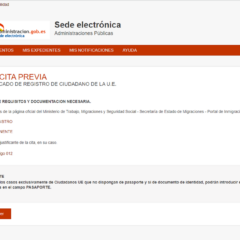
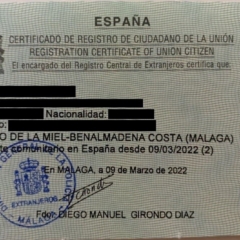
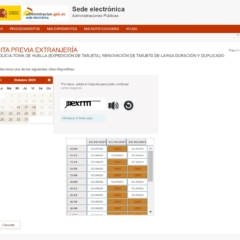
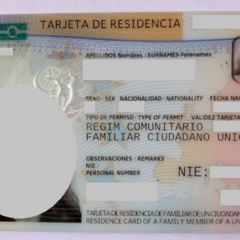
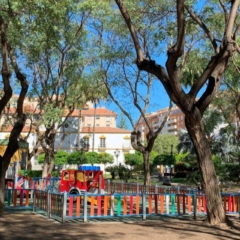


Thanks for useful guide, some additional details after having just done this:
NIE was not required for us (EU, i had it, but wife and kids not).
They wanted everyone to have own appointment.
Thank you for sharing your experience! For me and my family, I had the impression we couldn’t buy bread without a NIE – they asked it for everything. I think a little bit depends on who attends us (and also, a little bit may change over time). I’m glad it worked for you and your family! 🙂
It’s always so sweet and also full of a lot of fun for me personally and my office colleagues to search your blog a minimum of thrice in a week to see the new guidance you have got.
Wow, thank you!